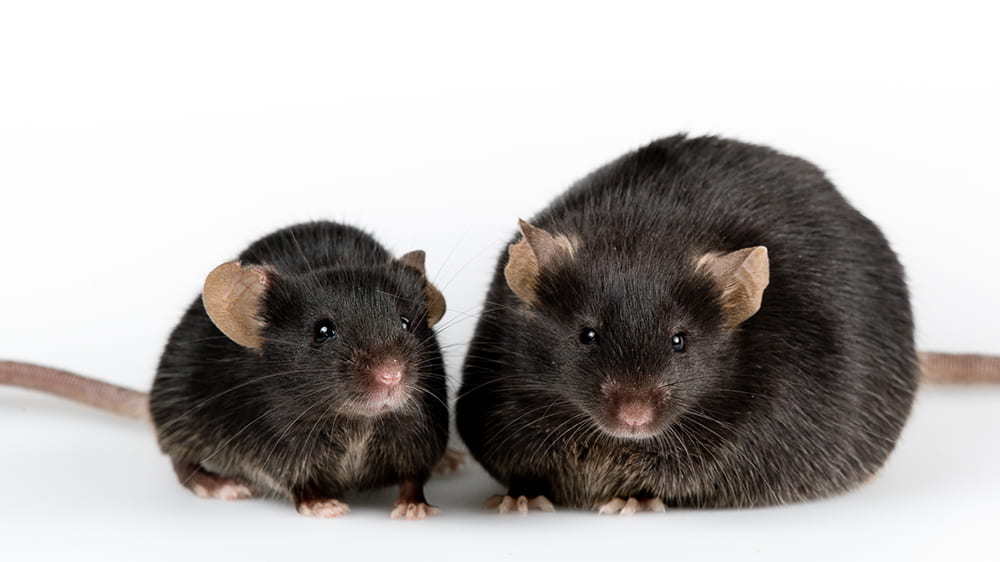by Jordan Greer
Post-operative infections affect an estimated 300,000 patients each year and comprise as many as 11 percent of deaths among patients who end up in an intensive care unit. They are also the most common hospital acquired infection, and treatment costs range between $3.5 to $10 billion annually. Not surprisingly, efforts to reduce post-op infection and understand contributing factors are a major concern—for doctors and patients alike.
New research out of the University of Chicago Medicine’s Department of Surgery shows how the interplay between diet, antibiotics, and the microbiome may lead to fatal post-operative infection.
John Alverdy, MD, and Sanjiv Hyoju, MD, leaders of the study, used mice to explore this relationship. They fed one group of mice standard chow and gave a second group a “western,” high-fat, low-fiber diet which resulted in a near 35 percent increase in weight. Mice then underwent a partial liver resection, an otherwise fully recoverable surgical procedure. Prior to surgery, both groups received prophylactic antibiotics to prevent infection, mimicking common practice in patients.
However, survival outcomes diverged significantly between the two groups. Mice eating a high-fat, low-fiber western type diet suffered major infection-related complications following surgery. Seventy percent of the obese mice on the western diet died from bacteria-related infections—in stark contrast to mice fed standard chow, where only 10 percent suffered similar complications.
The results indicate that changes in the gut microbiome may in part be responsible. After 40 days on the “western” diet, mice showed a massive shift in the bacteria found within their guts. One kind of bacteria, called Bacteroides, were reduced to less than two percent of their former population in the mice’s guts. When the mice got both antibiotics and the western diet, the Bacteroides population was completely lost. Prior research had shown that Bacteroides can suppress harmful bacteria, and their elimination from the mouse gut could represent the loss of an important line of defense against infection.
In theory, antibiotics should be able to prevent infection even when Bacteroides aren’t present. Their job is to fight infectious bacteria, after all. But strangely, to add insult to injury, the antibiotics made some bacteria, especially one type of Serratia, more resistant to the antibiotics in the overweight mice. Though Serratia was found in both mice groups, only in the mice fed a Western diet did this strain develop antibiotic resistance and spread to internal organs, resulting in lethal sepsis. Most disturbingly, this deadly Serratia strain seemed to originate from the mouse’s own gut microbiome. And Serratia strains weren’t the only ones: other antibiotic-resistant bacteria were found in these mice as well.
This research illustrates a potentially troubling finding. As Dr. Alverdy noted, “We may have uncovered a lethal combination developing in some of our most at-risk surgical patients. The combination of a western diet and exposure to certain antibiotics appears to exert a direct—and negative—influence on the microbiome and may predispose certain patients to life-threatening postoperative infections.” Research like this provides greater understanding of the mechanisms of how diet and antibiotics shift the normal microbiome to resistance and suggests a more targeted approach, in which high-risk patients preoperatively rehabilitate their diets and are prescribed a more tailored regimen of antibiotics prior to surgery.
Results from Alverdy’s lab shed important light on other current findings: that organisms resistant to the antibiotics used for prophylaxis cause half of postoperative infections. These studies provide important clues to address this disturbing trend; they suggest we need to invest more attention to the role diet and the microbiome play in immune function and safer surgeries.
Better understanding of this relationship—through research efforts like those in the Duchossois Family Institute—will help medical professionals devise the best standards of surgical care for their patients and save more lives.
Jordan Greer is an Evolutionary Biology graduate student and science communication intern from the University of Chicago




